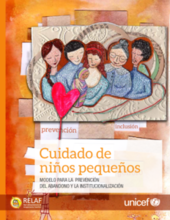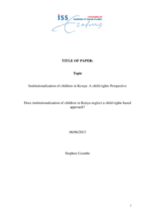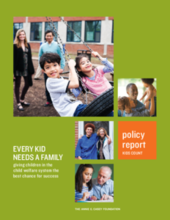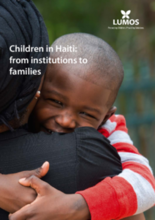Displaying 421 - 430 of 713
This video reveals the adverse conditions in the many unregistered orphanages in Haiti
This study examined psychopathology at age 12 years in a cohort of Romanian children who had been abandoned at birth and placed into institutional care, then assigned either to be placed in foster care or to care as usual.
This post on the Missions Dilemma website features an article and 30 minute documentary film on the harmful impact of institutionalization on children.
The current study seeks to examine the social images associated with children and youth in residential care and the respective care institutions in Portugal.
This essay examines institutional care not as a structure or facility, but as a model of care and protection for orphans and vulnerable children in Kenya.
The aim of this study was to assess the occurrence of violence among orphaned children in institutions in Egypt and its consequences on their physical and psychological health status.
In this executive summary, the Truth and Reconciliation Commission of Canada provides an introduction to the use of residential schools for aboriginal children in Canada, presents an overview of the Commission’s activities, describes the history and legacy of these residential schools, and outlines the challenges of reconciliation, including 94 recommendations, or “calls to action” for reconciliation in the field of Child Welfare among many others.
This KIDS COUNT policy report highlights the benefits of family care for children and the need to prioritize family settings for all children in the child welfare system in the United States.
This report, first distributed at the seminar co-hosted by Lumos and USAID on the challenge of institutionalization in Haiti, provides some background information on the effects of institutionalisation as well as the particular situation in Haiti.





